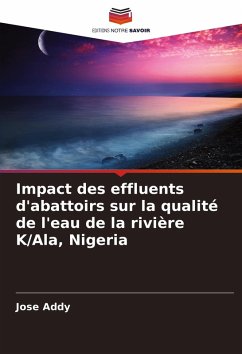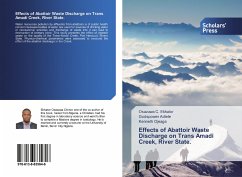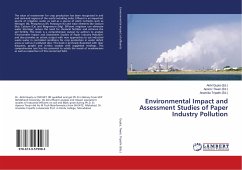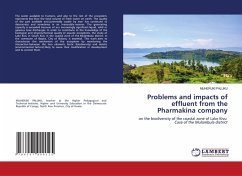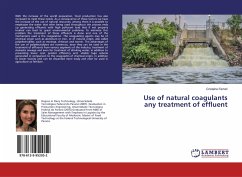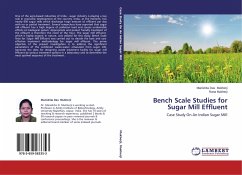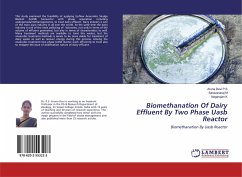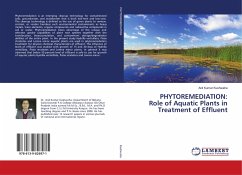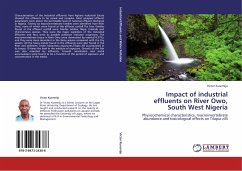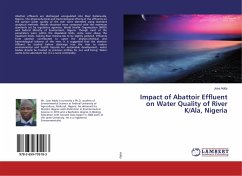
Impact of Abattoir Effluent on Water Quality of River K/Ala, Nigeria
Versandkostenfrei!
Versandfertig in 6-10 Tagen
36,99 €
inkl. MwSt.

PAYBACK Punkte
18 °P sammeln!
Abattoir effluents are discharged unregulated into River Katsina-Ala, Nigeria. The physicochemical and bacteriological effects of the effluents on the surface water quality of the river were identified using standard analytical methods. Results obtained were compared with the maximum standards set by regulatory agencies, World Health Organization (WHO) and Federal Ministry of Environment, Nigeria. Though most of the parameters were within the stipulated limits, some were above the maximum limits, making River Katsina-Ala to be slightly polluted. Effluents from abattoir contributed to upset the...
Abattoir effluents are discharged unregulated into River Katsina-Ala, Nigeria. The physicochemical and bacteriological effects of the effluents on the surface water quality of the river were identified using standard analytical methods. Results obtained were compared with the maximum standards set by regulatory agencies, World Health Organization (WHO) and Federal Ministry of Environment, Nigeria. Though most of the parameters were within the stipulated limits, some were above the maximum limits, making River Katsina-Ala to be slightly polluted. Effluents from abattoir contributed to upset the physico-chemical and bacteriological balance of the river. It is suggested that the abattoir effluent be treated before discharge into the river to reduce environmental and health hazards. For sustainable development, water bodies should be treated as precious entities for our well being. Water seems to be abundant but it is a scare commodity.



